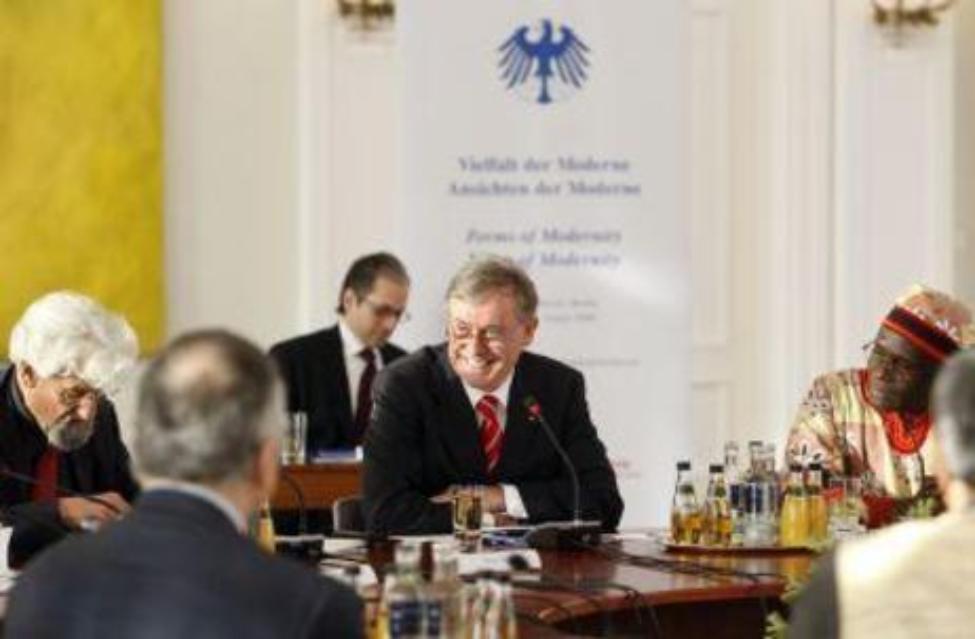Ladies and Gentlemen, Distinguished participants, welcome to the second in the discussion series "Forms of Modernity - Views of Modernity" here in Schloss Bellevue.
We have called this round of discussions "Wisdom and the Pursuit of Knowledge". In German the title is "Weisheit und Wissenschaft". Which brings us straight to the first intercultural questions: does "knowledge" mean the same as "Wissenschaft"? Does "wisdom" mean exactly the same as "Weisheit"? And what's the difference between "Wissenschaft" and "knowledge" on the one hand and "Weisheit" and "wisdom" on the other?
Some people regard "wisdom" and "knowledge" as being exactly the same. Others regard them as opposites: in German there is a saying which translates like this: "Wisdom is the ability to recognize when you have reached the limits of your knowledge." "Wisdom" is generally defined as a combination of life experience, cleverness, insight and inner maturity - as a special type of knowledge, in other words, which allows us to handle our knowledge and our possibilities responsibly. What role does it play in today's world, a world which likes to call itself the "global knowledge society"? How much wisdom does science need?
These are the type of questions we want to look at today. We also want to talk about how the scientific, technical civilization which shapes the lives of the majority of people in the world today actually emerged, how it has spread across the world, how it has changed, and how it has changed the world. We want to talk about curiosity and the love of discovery, about the innovative dynamism of science and about the increase in well-being and prosperity - as well as risks - that it has brought.
While we are talking, though, we also want to make it clear to ourselves just how differently all these phenomena can be interpreted. The Talmud contains this nice piece of wisdom: "We see things not as they are, but as we are." This gets right to the heart of the debate we will be having today. I view this as an opportunity to change our perspectives, to discover new ways of looking at the world, and maybe also as a chance to fill in a few gaps in our own thinking. In a world characterized by interdependences and multifarious links and connections, this willingness to think oneself into another's position is crucial. It is the basis for successful cooperation - and thus a vital precondition for our ability to meet the challenges facing humanity.
These challenges are largely due to developments in science and technology. The exciting question is whether they can also be resolved by them. Future scientific and technological developments give rise to many hopes, but also many fears. How capable of learning is the scientific world? This is another question we will doubtless be discussing today.
Albert Einstein said: "The world we have created is a product of our thinking; it cannot be changed without changing our thinking." This series of discussions is intended to help us do so. I should like to thank our cooperation partners, the Veranstaltungsforum of the publishing group Georg von Holtzbrinck and the BMW Stiftung Herbert Quandt. I hope we shall all enjoy interesting and fruitful discussions. I now hand over to Professor Joas, who will be chairing today's and indeed the other rounds.


